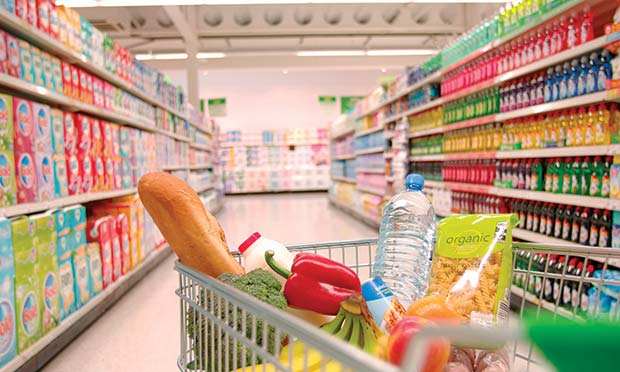Economic uncertainty over the past few years has permanently changed our supermarket shopping habits, to the point that hunting for bargains and generally being more thrifty have become mainstays of good household management. Whereas previously, consumers were less price sensitive, wary of ‘foreign’ discounters and preferred to shop for brands they knew at the Big Four supermarkets, levels of loyalty are now in decline. Nielsen reported this year that sales via Aldi and Lidl now account for over 10% of the UK’s total expenditure and with engaging social media campaigns like #Lidlsurprises, it’s easy to see why.

Lower prices aside, consumers have also become much more impressed with the quality of supermarket own brands and they now account for over 54% of sales. In 2014, 60% of shoppers said they believed own-label brands were just as appealing as branded alternatives, which is double the level reported within the same survey in 2010, just 4 years earlier. These trends, together with the difficult economic environment, have helped pave the way for the recent successes enjoyed by discounters – who until recently have almost exclusively offered own brand items – and their increasing market share is set to continue. As Planet Retail forecast earlier this year, “the Big Four are in for another few turbulent years”.
At the same time as demand for own label goods has increased, so too has the pressure placed on manufacturers of own label products into the UK’s big 4 supermarkets. A direct result of more intense competition caused by the success of discounters like Aldi and Lidl, this has resulted in a number of inevitable modifications to supply chain processes.
For example, falling sales has forced mainstream supermarkets to carry less stock and a smaller variety of items. This has meant distribution partners and the manufacturers who supply them need to be more efficient at handling a larger number of smaller orders more frequently. In turn, this change poses another challenge, because how can the manufacturer and logistics provider afford to make these more frequent deliveries? Without reviewing ways to improve the process itself, it essentially means higher materials handling costs and potentially lower profit levels. In response, manufacturers have had to rely more heavily on technology to automate as many processes as possible, ensure improved accuracy and productivity and reduce errors.
When responding to these extreme price sensitivity pressures, retailers have increased the pressure placed on their own label suppliers and there are now almost always supply chain improvement initiatives ongoing to strip out margins and improve quality. Quality auditing is also growing in frequency and manufacturers are required to provide automated checks for HACCP compliance, monitor for possible contamination and verify ingredient quality. By automating these processes, documentation requests can be fulfilled by manufacturers immediately and the overall logistics process efficiency can be improved. For example, Indigo has been working with a leading food manufacturer supplying supermarkets with own label products, to introduce automated QA data capture in response to new legislation. Their investment has had a very significant impact, by improving the efficiency of receiving processes and cutting response times to retailer audits.

Whilst the big 4 supermarkets continue to adapt their business models to compete with the likes of Aldi and Lidl, discounters too are revising their offerings and starting to offer branded goods, albeit at a sometimes hefty discount. Although they are not quite at the stage of ships passing in the night, we have a situation whereby discounters are trying to broaden their minimalist ranges and open larger stores to appeal to the more traditional supermarket shopper. At the same time, rivals are trying to emulate the discounters’ original ‘back to basics’ models and scale down their ranges and store footprints. It’s quite an ironic scenario.
Some experts suggest this strategy U-turn could mean discounters ultimately become victims of their own success. Even though they started out nimbly with a sparse product range, the growing variety of products available and the cost of running their stores, is beginning to increase. At the same time, traditional supermarkets have rationalised their offerings and cut prices further, which means there is less differentiation between them and discounters for an already less loyal consumer base.
Added to this, the discounters’ recently acquired customers have higher expectations and demands. With footfall moving in the direction they want, it is time to increase their product range and provide less shelf space per product to accommodate the greater range – or shoppers could return to their supermarket stalwarts. And this means coping with more frequent deliveries and fewer qualities of each item, also increasing total materials handling costs. The net result could become too much of a strain for their otherwise very simple business models, for the same reason that traditional supermarkets are struggling.
Longer term the ‘can’t beat ‘em, join ‘em’ mentality shown by the traditional supermarkets may not be enough to protect their eroding market shares. They will need to differentiate in ways that discounters cannot. Achieving this means innovating new, premium level own brand ranges, investing in productivity enhancing technology, designing clever shopping apps and making fast inroads with mobile commerce and click and collect type delivery options.
 The next few years will be very interesting for observers, and the general ‘thift trend’ away from big ticket brands to value, means consumers will be buying more own branded goods. Whether it is traditional supermarkets or the discounters that are selling them, it’s a great opportunity for the private label; producers to capitalise upon, provided they have the technology and processes in place to sustain a decent profit margin.
The next few years will be very interesting for observers, and the general ‘thift trend’ away from big ticket brands to value, means consumers will be buying more own branded goods. Whether it is traditional supermarkets or the discounters that are selling them, it’s a great opportunity for the private label; producers to capitalise upon, provided they have the technology and processes in place to sustain a decent profit margin.
About the author
Mark Wilkinson is a supply chain consultant at Indigo Software. He specializes in advising food and beverage manufacturers on how to improve warehouse and supply chain efficiency.




Comments are closed.